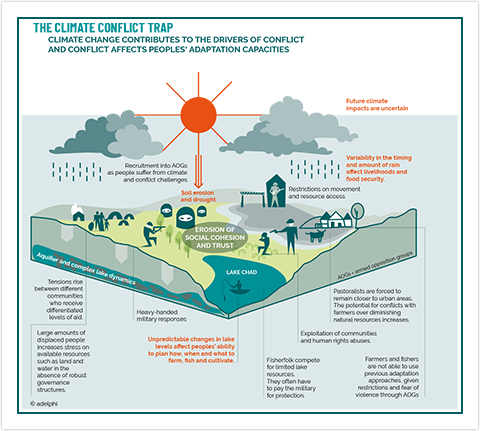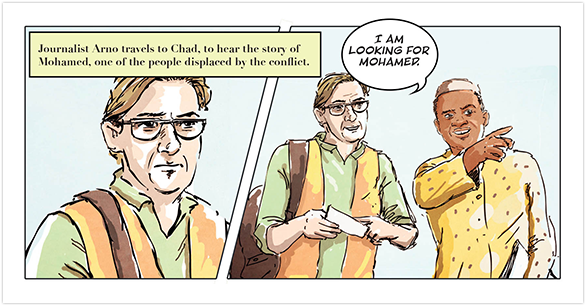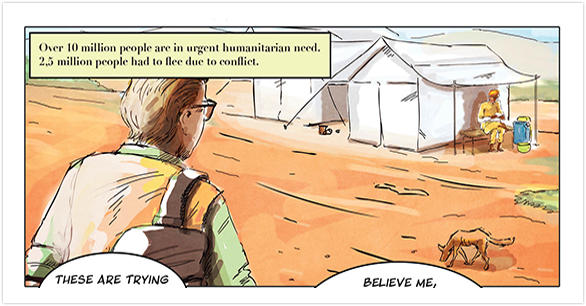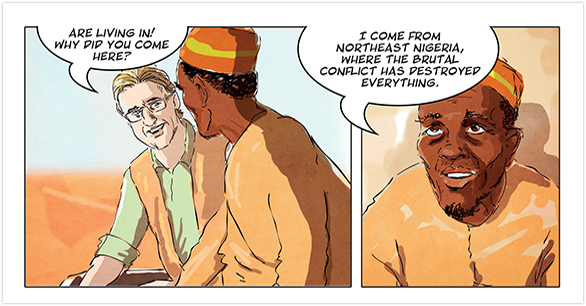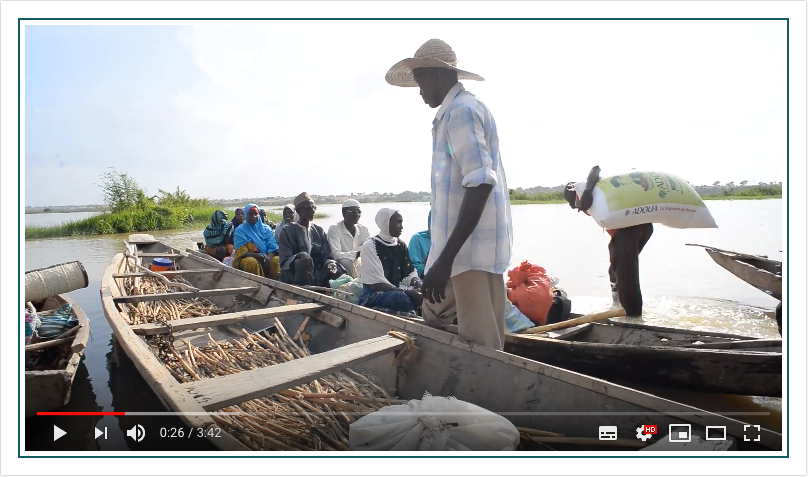SHORING UP STABILITY:
Addressing Climate & Fragility Risks in the Lake Chad Region
Lake Chad is caught in a conflict trap. Violence between armed opposition groups – including the so-called ‘Islamic State West Africa Province’ and ‘Boko Haram’ – and state security forces has left 10.7 million people in need of humanitarian assistance. Climate change is compounding these challenges. This report identifies key risks and proposes pragmatic solutions to shore up stability in the region.
The Security Council “recognises the adverse effects of climate change and ecological changes … on the stability of the Region, including through water scarcity, drought, desertification, land degradation, and food insecurity, and emphasises the need for adequate risk assessments and risk management strategies by governments and the United Nations relating to these factors.”
— UN Security Council Resolution 2349 (31 March 2017)
THE VIDEO
Lake Chad’s conflict trap can seem insurmountable. But the region has always been a source of resilience and it can be again. Watch this video to learn what can be done to break the conflict trap and to shore up stability in the Lake Chad region.

